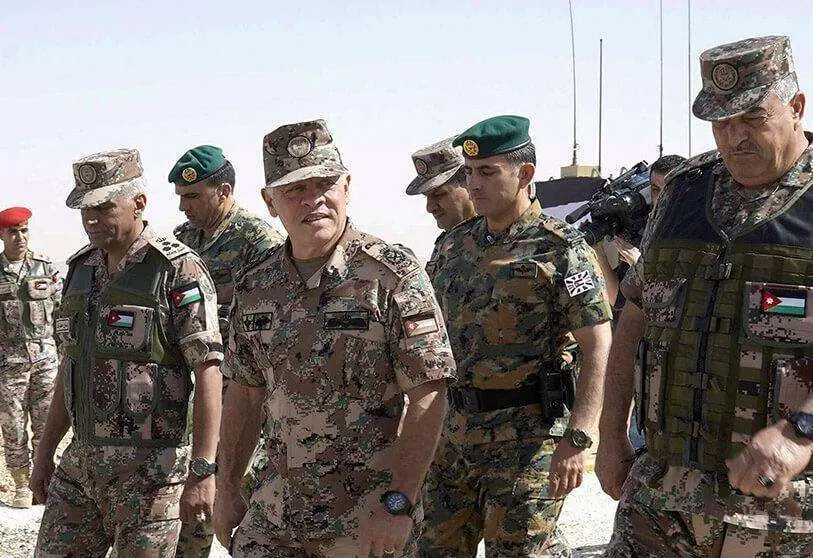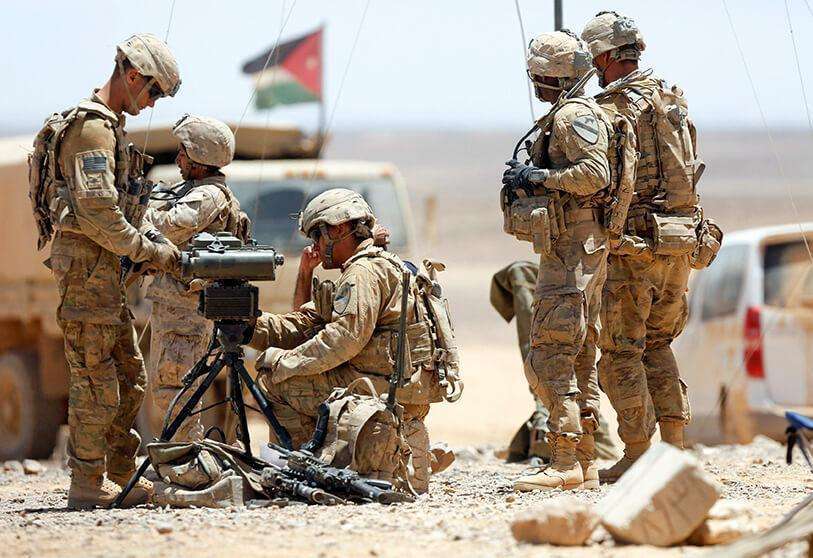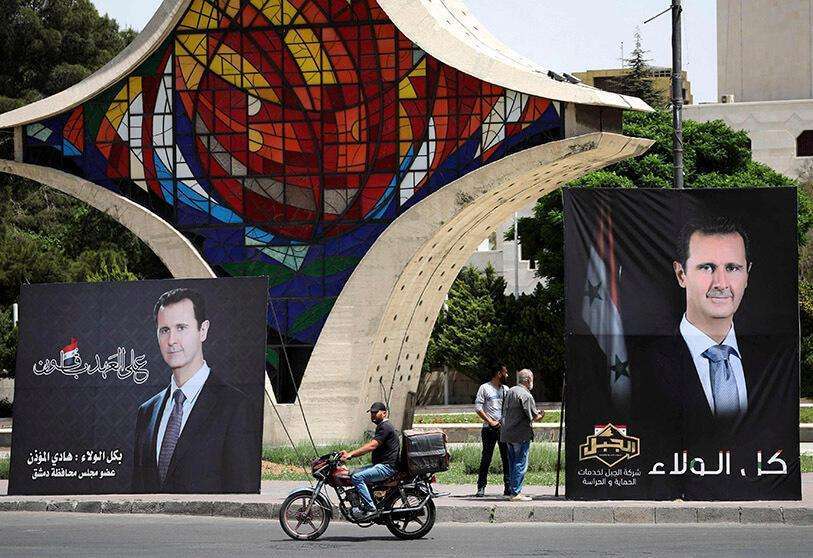Jordan closes its main crossing with Syria again after escalation in Deraa

Jordan has again closed its main border crossing with Syria, the Nasib-Yaber crossing, which was reopened for the transit of goods a month ago, citing "security reasons" following the recent escalation of violence between government troops and local militiamen on the Syrian side of the border.
"The border crossing will be reopened when the conditions are right," an authorised Jordanian interior ministry source told the state-run Petra news agency in announcing the closure.
The decision comes just three days after Jordan announced that the Nasib-Yaber crossing would be reopened to full capacity from Sunday and that 100 passenger vehicles per day would be allowed through.
The crossing, which connects the Syrian town of Nasib with the Jordanian town of Jaber, is the main commercial link between the two countries and connects to the international road that runs north-south through Syria via Damascus.

Before the Syrian war, it was one of the most prominent land crossings for the transport of goods, but between 2015 and 2018 the Syrian authorities closed it after rebels took control of Nasib.
In July 2018, forces loyal to Syrian President Bashar al-Assad regained control of the crossing and the entire province of Deraa, where Nasib is located, but in August last year Jordan closed it again in an attempt to curb the spread of the coronavirus.
Last month, Amman decided to partially reopen it to allow the passage of Jordanian exports to countries beyond Syria.
Although it now cites unspecified "security reasons" for reopening, the move coincides with an escalation of violence in Deraa province following an offensive by government troops against former rebels in the Deraa al-Balad neighbourhood and other areas of the provincial capital.

So far, the upsurge in violence in Deraa has left at least 32 people dead, including 12 civilians, and more than 10,000 displaced, according to the Syrian Observatory for Human Rights, an NGO.
Syria's southern province of Deraa saw sporadic clashes between government troops and local fighters as it awaits the announcement of a deal between the sides following Thursday's escalation that killed at least 28 people in different parts of the region.
The Syrian Observatory for Human Rights said in a statement that relative calm prevails in the province as the two sides negotiate a possible Russian-mediated pact, only broken in recent hours by some shooting and exchanges of machine-gun fire at some points.
Troops loyal to Syrian President Bashar al-Assad launched an offensive on Deraa al-Balad, one of the two main districts of the regional capital, prompting a military response from local fighters not only in the city but also in many other parts of the province.
According to the Observatory, a UK-based NGO with an extensive network of partners on the ground, these clashes and attacks killed eleven civilians, although the Civil Defence, known as the White Helmets, put the figure at 18.

The escalation also claimed the lives of nine opposition militiamen, almost half of them killed in Deraa al-Balad, and eight Syrian forces, a toll that the organisation believes could rise due to the presence of several critically wounded.
Damascus laid siege to Deraa al-Balad in late June to pressure former Free Syrian Army rebels to surrender their small arms and allow government forces to set up checkpoints in the district, as they sought to gain a foothold in the former opposition stronghold.
The Central Committee of Deraa, formed by the opposition to negotiate with al-Assad's government, and Damascus reached an agreement in recent days to lift the siege and accept the government's main demands, but the pact failed after the army was hit by a series of attacks.
The Observatory said yesterday's clashes were the "most violent" in the province since government forces retook control in 2018.
Deraa al-Balad had been in rebel hands since shortly after the start of the revolt against al-Assad in 2011, which originated in Deraa and spread from there to other parts of the country, until they signed a Russian-mediated surrender pact three years ago.








